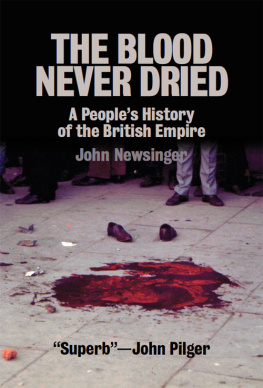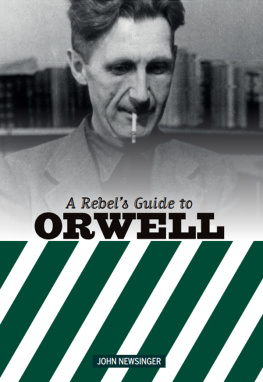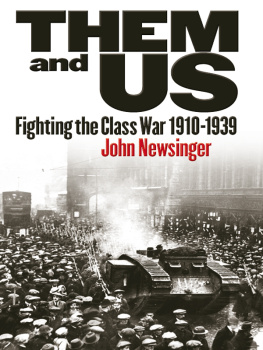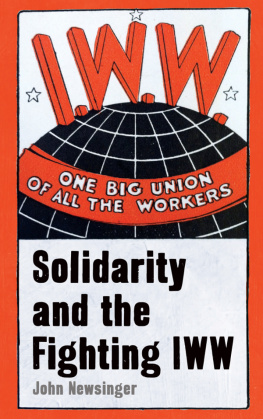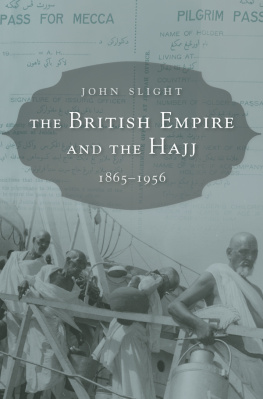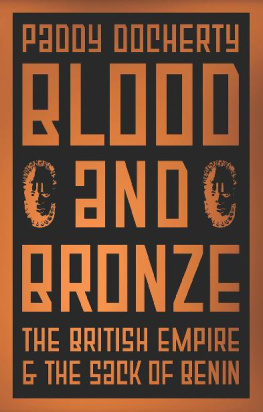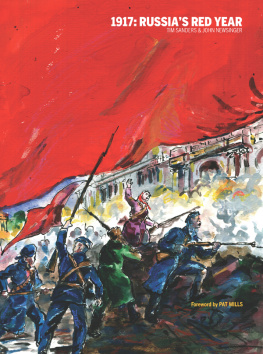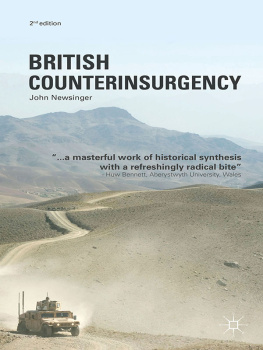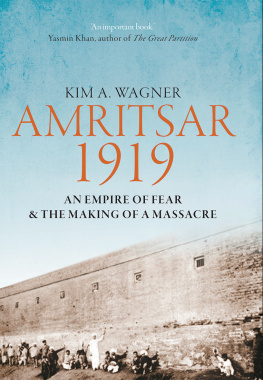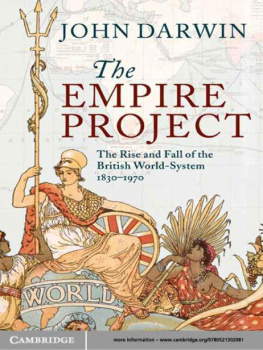John Newsinger - The Blood Never Dried: A People’s History of the British Empire
Here you can read online John Newsinger - The Blood Never Dried: A People’s History of the British Empire full text of the book (entire story) in english for free. Download pdf and epub, get meaning, cover and reviews about this ebook. year: 2010, publisher: Trentham Books, genre: History. Description of the work, (preface) as well as reviews are available. Best literature library LitArk.com created for fans of good reading and offers a wide selection of genres:
Romance novel
Science fiction
Adventure
Detective
Science
History
Home and family
Prose
Art
Politics
Computer
Non-fiction
Religion
Business
Children
Humor
Choose a favorite category and find really read worthwhile books. Enjoy immersion in the world of imagination, feel the emotions of the characters or learn something new for yourself, make an fascinating discovery.
- Book:The Blood Never Dried: A People’s History of the British Empire
- Author:
- Publisher:Trentham Books
- Genre:
- Year:2010
- Rating:3 / 5
- Favourites:Add to favourites
- Your mark:
- 60
- 1
- 2
- 3
- 4
- 5
The Blood Never Dried: A People’s History of the British Empire: summary, description and annotation
We offer to read an annotation, description, summary or preface (depends on what the author of the book "The Blood Never Dried: A People’s History of the British Empire" wrote himself). If you haven't found the necessary information about the book — write in the comments, we will try to find it.
The Blood Never Dried: A People’s History of the British Empire — read online for free the complete book (whole text) full work
Below is the text of the book, divided by pages. System saving the place of the last page read, allows you to conveniently read the book "The Blood Never Dried: A People’s History of the British Empire" online for free, without having to search again every time where you left off. Put a bookmark, and you can go to the page where you finished reading at any time.
Font size:
Interval:
Bookmark:
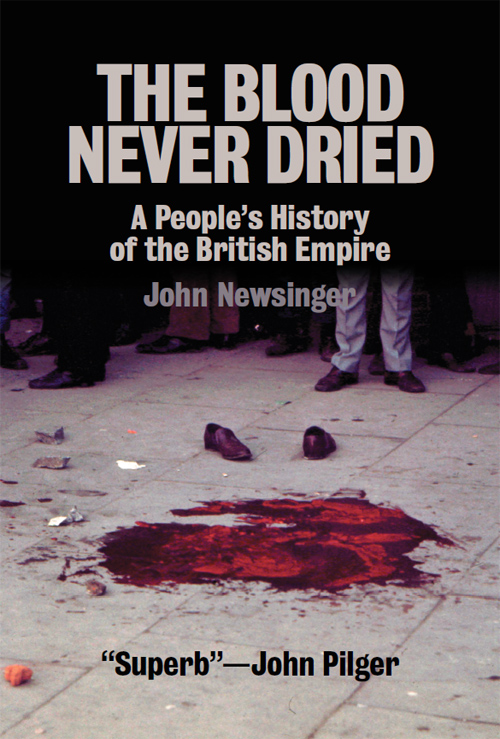
On its colonies the sun never sets,
but the blood never dries
Ernest Jones, Chartist and socialist, 1851
About the author
John Newsinger is senior lecturer in the School of History and Cultural Studies at Bath Spa University College. His most recent books include Orwells Politics (Macmillan, 2000), United Irishman (Merlin, 2001) and Rebel City: Larkin, Connolly and the Dublin Labour Movement (Merlin, 2004).
Acknowledgements
Thanks to Lorna Chessum and our sons, Jack and Ed; to Hannah Dee and Mark Thomas at Bookmarks; to Chris Bambery and John Rose for their comments and advice; to Christine Gardner and Robert Maisto for their hospitality; to my typist, Rose Senior; and to my colleagues and friends at Bath Spa University, in particular, Alan Marshall.
THE BLOOD
NEVER DRIED
A Peoples History
of the British Empire
John Newsinger

To the Leicester Old Comrades: Chris Lymn, Mal Deakin, Andy Wynne, Jim Tolton, John Peach and the late Ken Orrill
The Blood Never Dried: A Peoples History of the British Empire
John Newsinger
First published July 2006
Bookmarks Publications Ltd,
c/o 1 Bloomsbury Street, London WC1B 3QE
Copyright John Newsinger
ISBN 1905192126
Printed by Cambridge Printing
Designed by Bookmarks Publications
Contents
Introduction: the blood never dried
I N 2003 N IALL F ERGUSON published his Empire: How Britain Made The Modern World, a volume intended to capture the spirit of the times. Empires and imperialism were being celebrated as a duty that powerful states owed to their weaker brethren. This duty was to be put into effect with catastrophic consequences with the invasion of Iraq. Ferguson followed this bestselling volume with another one, Colossus: The Rise and Fall of the American Empire, establishing himself as a latter day Rudyard Kipling, urging the American ruling class to take up the white mans burden.
One problem with contemporary apologists for empire, however, is their reluctance to acknowledge the extent to which imperial rule rests on coercion, on the policeman torturing a suspect and the soldier blowing up houses and shooting prisoners. It is the contention of this book that this is the inevitable reality of colonial rule and, more particularly, that a close look at British imperial rule reveals episodes as brutal and shameful as in the history of any empire. Indeed, a case in point is the methods the British used to suppress the Mau Mau rebellion in Kenya in the 1950s. This is especially pertinent, because in a personal reminiscence Ferguson tells his readers that thanks to the British Empire, my earliest childhood memories are of colonial Africa. His father worked for two years in Kenya after independence, but as he observes, scarcely anything had changedWe had our bungalow, our maid, our smattering of Swahiliand our sense of Now this is, of course, all very touching but his magical time was only made possible by one of the most ferocious episodes of colonial repression in British imperial history which does not merit so much as a mention in his book. The Mau Mau revolt of the 1950s was put down with terrible brutality, the routine use of torture, summary executions, internment on a massive scale, and the hanging of over 1,000 prisoners. How seriously should we take a history of the empire that somehow misses all this? Hopefully this volume will serve, at least in part, as an antidote to Fergusons work.
First, however, let us make clear what we are primarily concerned with here. Imperialism has two dimensions: firstly, the competition between the great imperial powers, competition that in the 20th century produced two world wars and the Cold War. This competition is the driving force of modern imperialism, and it has wreaked terrible damage on the world, consuming millions of lives. What this book is primarily concerned with, however, is not the relationship between the British Empire and its imperial rivals, but with the second dimensionthe relationship between the imperial power and its conquered peoples. The best description of this relationship was provided by George Orwell in his novel Burmese Days, where he wrote that imperialism consisted of the policeman and the soldier holding the native down, while the businessman went through his pockets. Of course, countries were not invaded and occupied just for reasons of economic exploitation. Strategic considerations were also an important factor, although these strategic considerations invariably involved protecting colonies that were of economic importance.
It is the contention here that imperial occupation inevitably involved the use of violence and that, far from this being a glorious affair, it involved considerable brutality against people who were often virtually defenceless. For too long the image of imperial conquest that has prevailed in Britain is that propagated by the 1964 film Zulu. This tells the epic story of a small band of British soldiers battling against overwhelming odds at Rorkes Drift (in todays South Africa) in 1879. The British fight with both courage and honour and emerge victorious, more because of their national character than their superior weaponry. What the film conveniently leaves out is the This was and remains the reality of colonial warfare.
It is worth remembering that the much trumpeted Shock and Awe that the United States promised to inflict on Iraq in 2003 had been inflicted by the British on city after city throughout the world in the course of the 19th and 20th centuries. Bombardments that left hundreds dead, districts reduced to rubble, and populations cowed are hardly worth the notice of most historians. If it had been British cities shelled by an invader, the story would have been very different. How many readers, one wonders, have even heard of the British bombardment of the Indonesian city of Surabaya in November 1945? A battle that is still celebrated as Heroes Day, a vital episode in that countrys struggle for independence, is altogether unknown in Britain, the country that carried out the attack.
Once a country was conquered, imperial rule was maintained by force. Whatever the particular architecture of imperial rule, it always rested in the end on the back of the policeman torturing a suspect. Those who affect surprise at the excesses of Abu Ghraib need to be reminded that these are the inevitable and unavoidable consequences of colonial rule. The aim in what follows is to provide evidence of this.
The book is also concerned to celebrate, dare one say glorify, resistance to empire. From the slaves who overthrew slavery in the Caribbean, to the Indian rebels of the 1850s, from the Irish Republicans who took up arms during and after the First World War, to the Palestinian peasants fighting against the British and the Zionists in the 1930s, from the Mau Mau in the 1950s to the Iraqi resistance of today, brave men and women have resisted empire. The book also chronicles the extent to which radicals and socialists in Britain organised, demonstrated and protested in solidarity with these resistance movements. While the Stop the War Coalition can legitimately claim to be the largest and most powerful anti-imperialist and anti-war movement in British history, it stands in an honourable tradition. It was in the 1850s that the Chartist and socialist Ernest Jones responded to the claim that while the sun might never set on the British Empire, similarly the blood never dried. Anti-imperialists today stand in the tradition of Ernest Jones and William Morris, another socialist and fierce critic of the empirea tradition to be proud of.
Font size:
Interval:
Bookmark:
Similar books «The Blood Never Dried: A People’s History of the British Empire»
Look at similar books to The Blood Never Dried: A People’s History of the British Empire. We have selected literature similar in name and meaning in the hope of providing readers with more options to find new, interesting, not yet read works.
Discussion, reviews of the book The Blood Never Dried: A People’s History of the British Empire and just readers' own opinions. Leave your comments, write what you think about the work, its meaning or the main characters. Specify what exactly you liked and what you didn't like, and why you think so.

